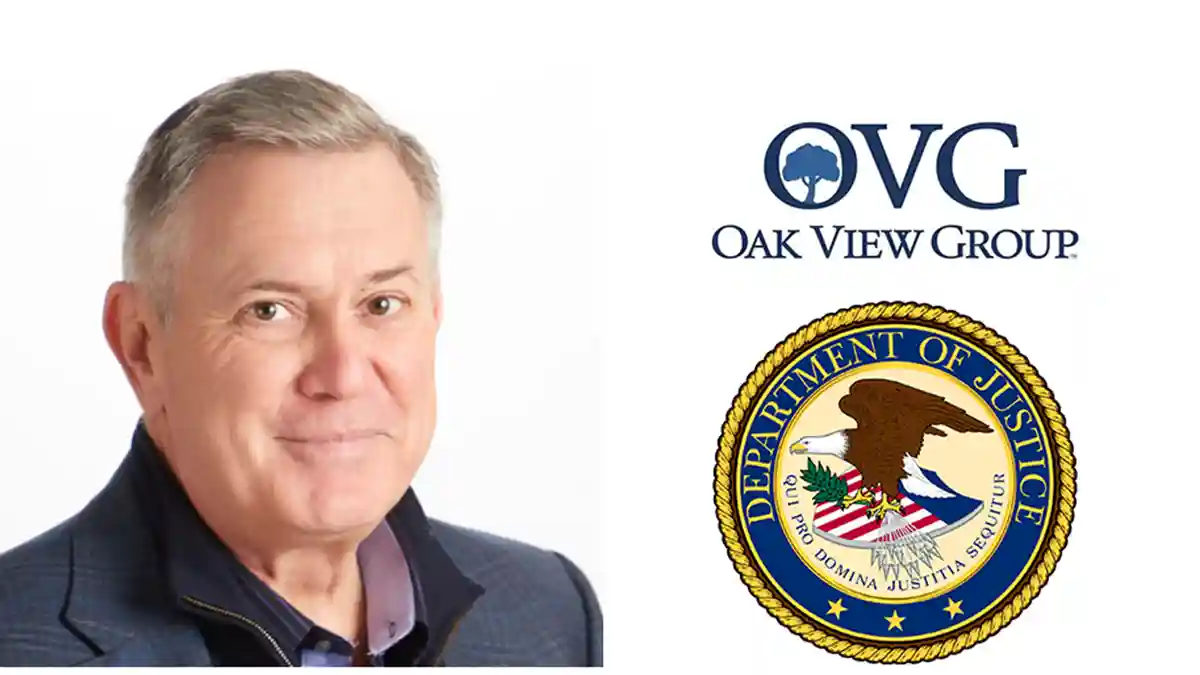Non‑prosecution agreement shows OVG pocketed $20 million upfront and $7 million a year to steer venues to Ticketmaster
Documents released in the wake of former Oak View Group (OVG) chief executive Tim Leiweke’s bid‑rigging indictment reveal that the arena developer quietly accepted tens of millions of dollars from Live Nation Entertainment–owned Ticketmaster while urging its venue clients to sign exclusive ticketing deals with the platform—and never told the venues about the money.
According to exhibits attached to OVG’s July 9 non‑prosecution agreement with the U.S. Department of Justice (see below), Ticketmaster wired OVG an up‑front payment of $20 million in November 2022 and agreed to pay $7 million annually thereafter. In exchange, OVG’s venue‑management arm, OVG360, “encouraged its clients to sign ticketing agreements with Ticketmaster” or remain with the service, the filing states. “When OVG advocated in this way for [Ticketmaster], OVG did not disclose to the venue owners that OVG had entered into an agreement with [Ticketmaster] that called for OVG to receive payments in connection with ticket sales,” investigators wrote.
READ MORE:
Oak View Group CEO Tim Leiweke indicted in alleged bid-rigging scheme for UT’s Moody Center
Tim Leiweke resigns as OVG CEO after indictment; Granger takes over as chief executive
Kickbacks unearthed during Legends‑ASM merger review
The payment scheme surfaced only because antitrust lawyers spent 10 months sifting through emails while reviewing Legends Hospitality’s 2024 bid to acquire ASM Global. Messages between Leiweke and then‑Legends CEO Shervin Mirhashemi—the same correspondence that underpins this month’s criminal bid‑rigging charge involving the University of Texas’ Moody Center—also detailed the Ticketmaster arrangement, according to the DOJ.
OVG was spared prosecution on the kickback issue after agreeing to cooperate fully with “any ongoing criminal investigation of the conduct of the Company and its business partners.” The company paid a $15 million civil penalty, while Legends paid $1.5 million, and committed to making executives available for grand‑jury testimony—an obligation that pointedly excludes Leiweke’s daughter and OVG chief operating officer Francesca Bodie.
‘Pimp,’ ‘hammer,’ ‘protector’ for Ticketmaster
The newly disclosed payments dovetail with language the DOJ used in its separate 2024 civil antitrust lawsuit against Live Nation. In that filing, the government described OVG as Ticketmaster’s “pimp, hammer and protector,” accusing the company of avoiding competition with the ticketing giant and pressuring arenas to go— or stay—exclusive with Ticketmaster.
Although neither OVG nor Leiweke is a defendant in the Live Nation case, the revelation that OVG directly profited from the ticketing contracts could bolster the government’s narrative that Live Nation maintains its market power through a network of allies rather than open competition.
From bid‑rigging to kickbacks
Leiweke, who co‑founded OVG with Irving Azoff in 2015, resigned as CEO the day the indictment was unsealed but remains vice chair of the board. Prosecutors say he cut an illegal deal with Legends in 2018 to keep the rival from bidding on the $338 million Moody Center project, then reneged on promises to share subcontracts once OVG had the work sewn up. The maximum penalty if convicted is 10 years in prison and a $1 million fine.
OVG manages or advises more than 300 venues worldwide, ranging from Seattle’s Climate Pledge Arena to the American Bank Center in Corpus Christi—where local officials meet Tuesday to consider tearing up the contract in light of Leiweke’s indictment. The kickback revelations add fresh urgency to those deliberations: any city or university that signed a Ticketmaster deal on OVG’s recommendation may now question whether the advice was tainted by undisclosed financial incentives.
For venue owners—and the ticket buyers who ultimately shoulder ticketing fees—the documents raise a simple question: Were choices about who sells tickets driven by service quality, or by a secret multimillion‑dollar payday?





